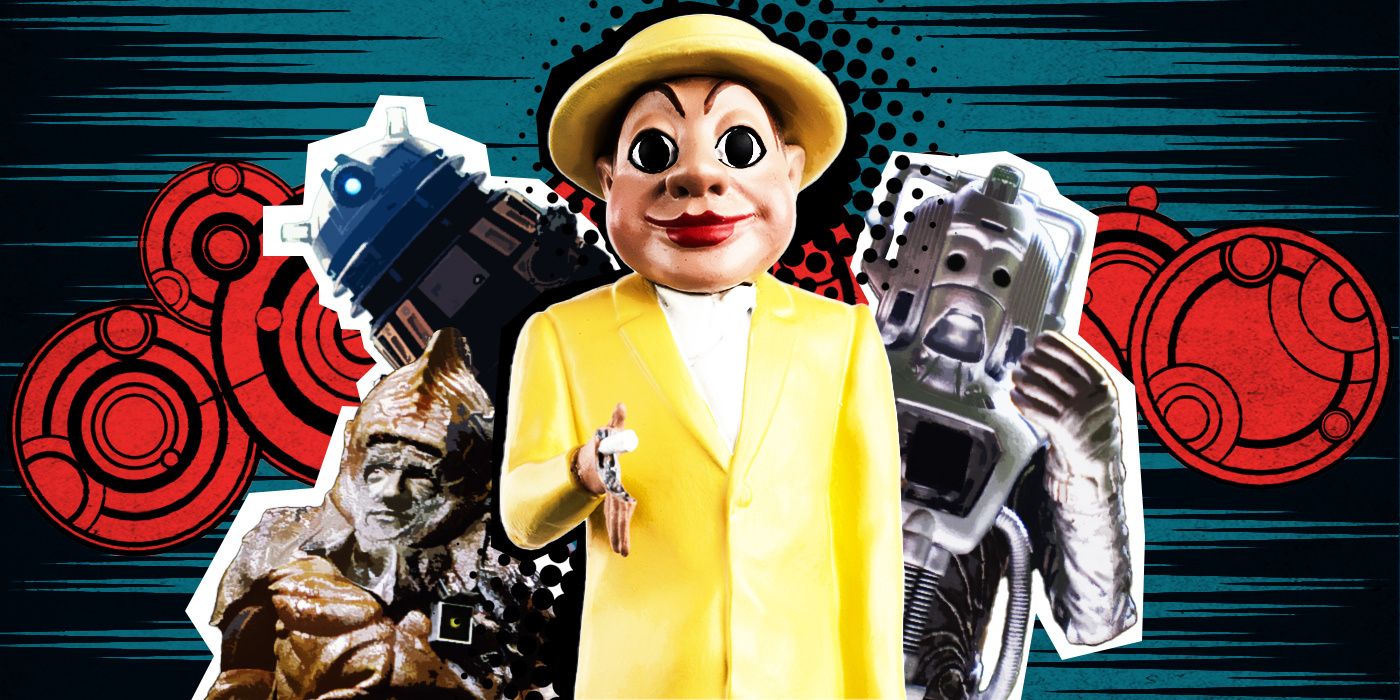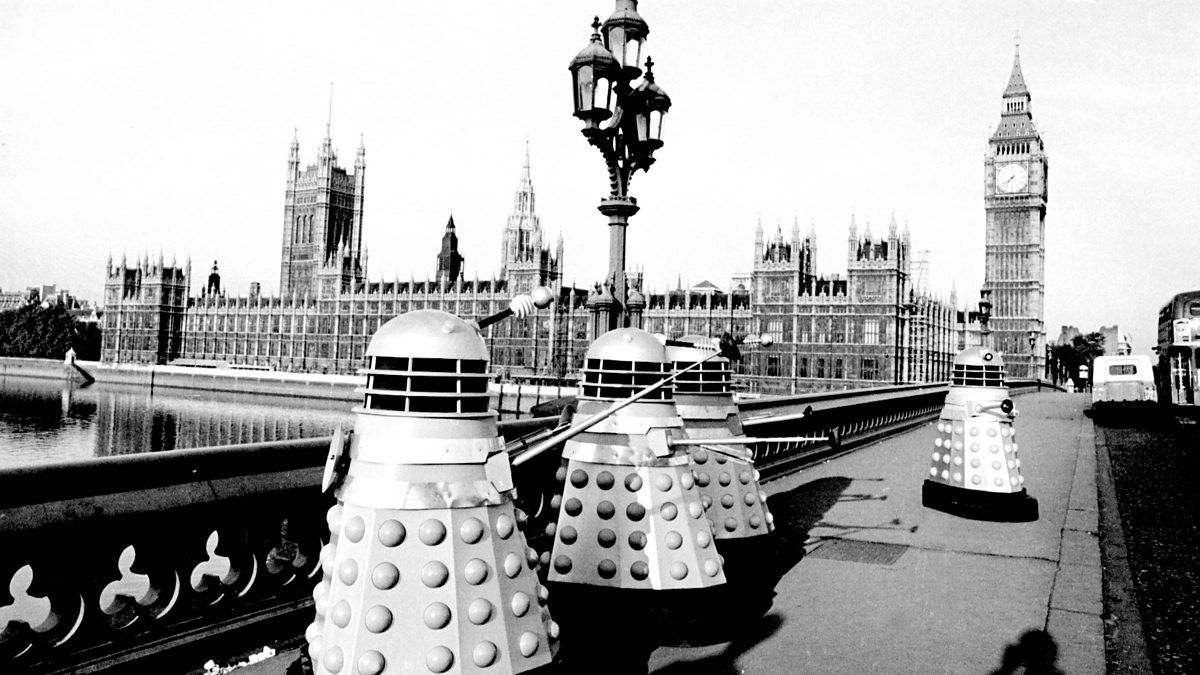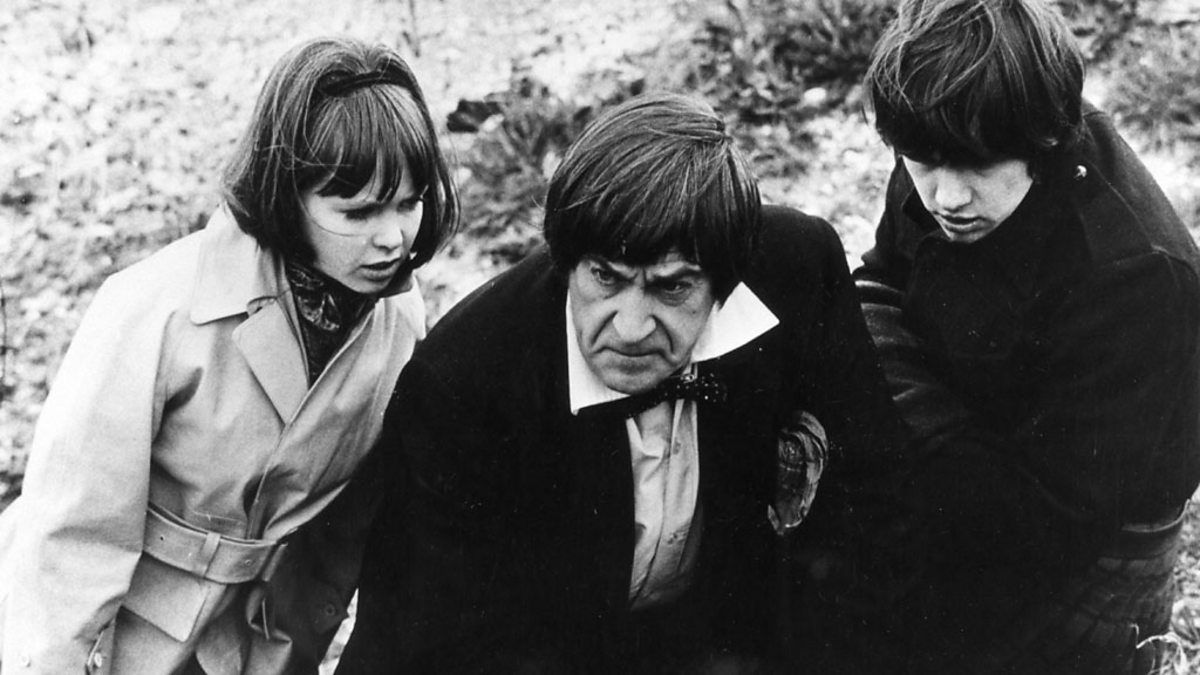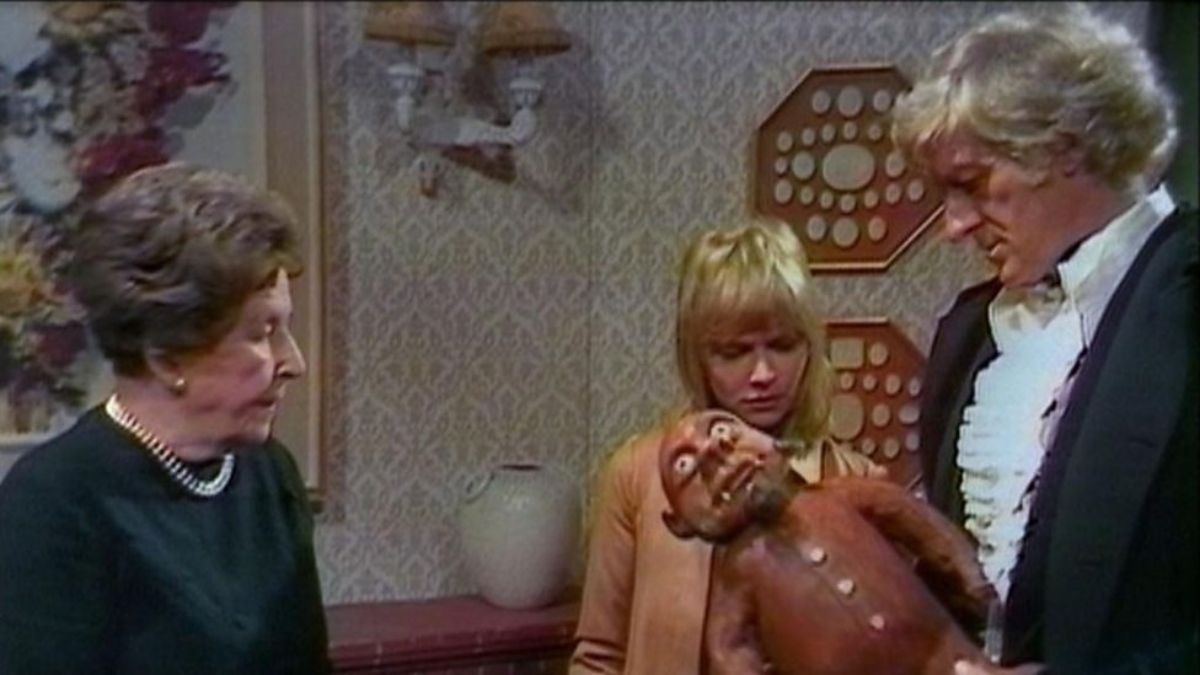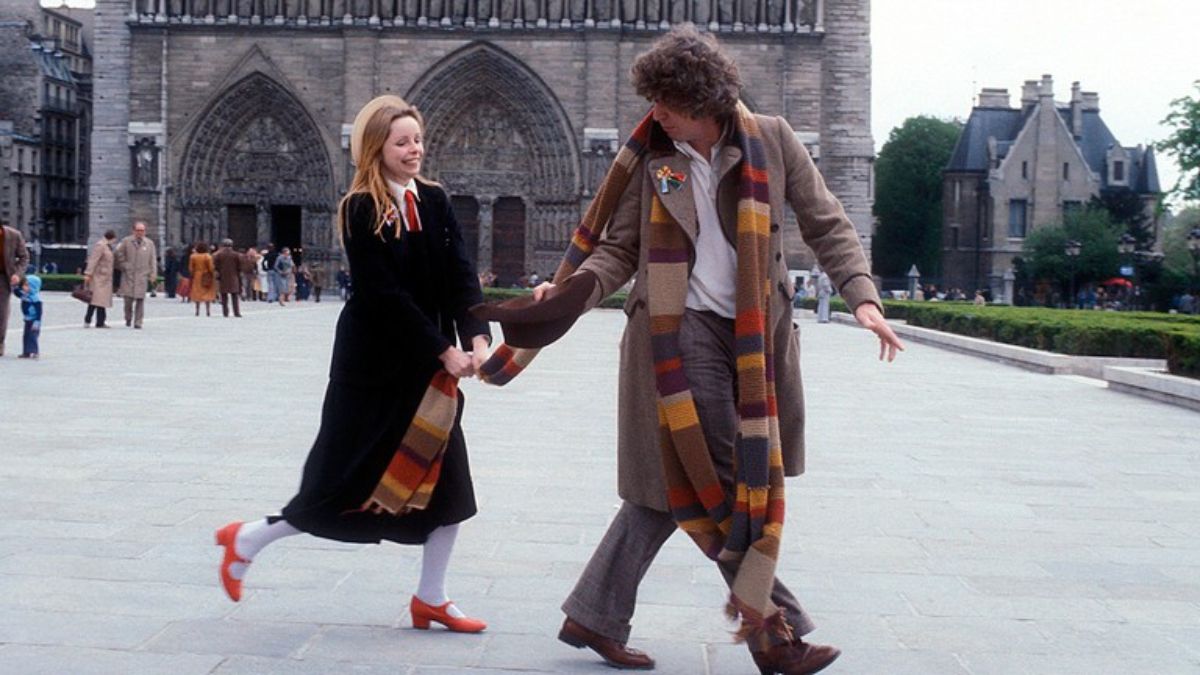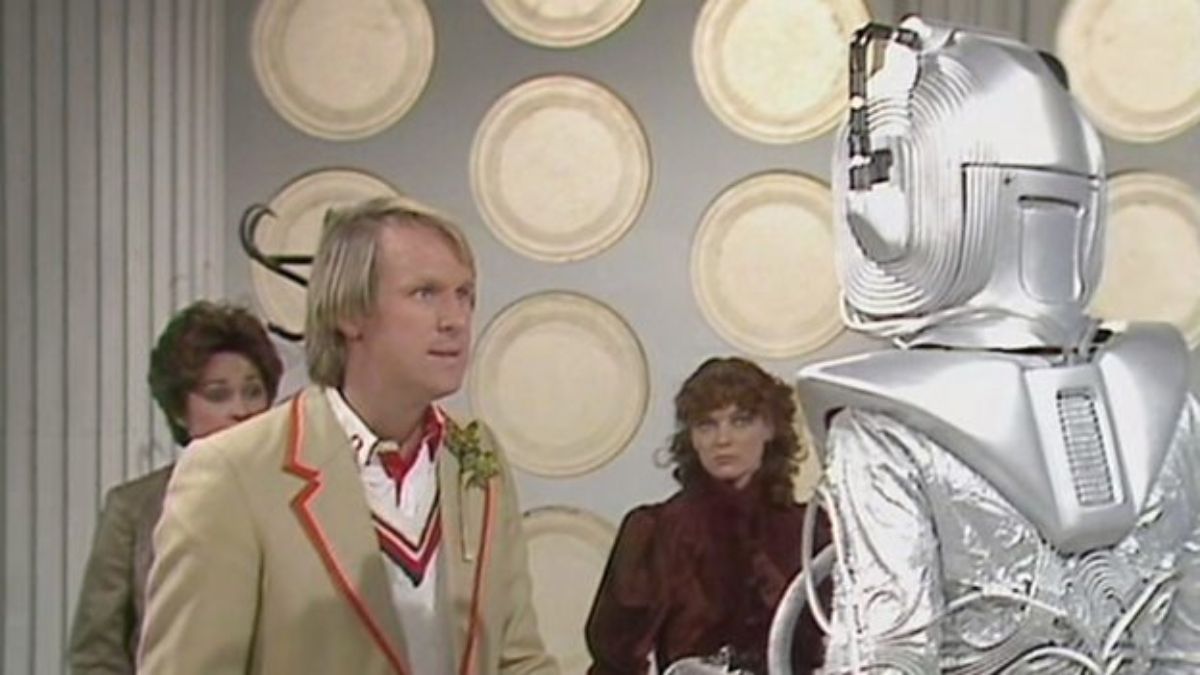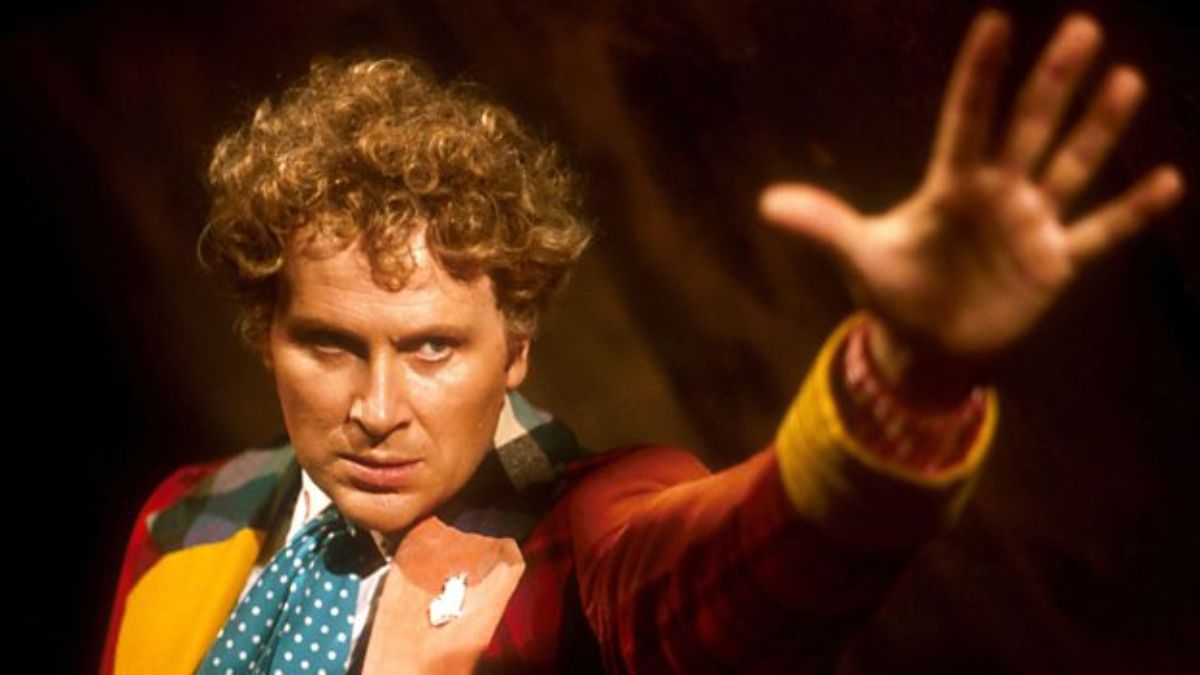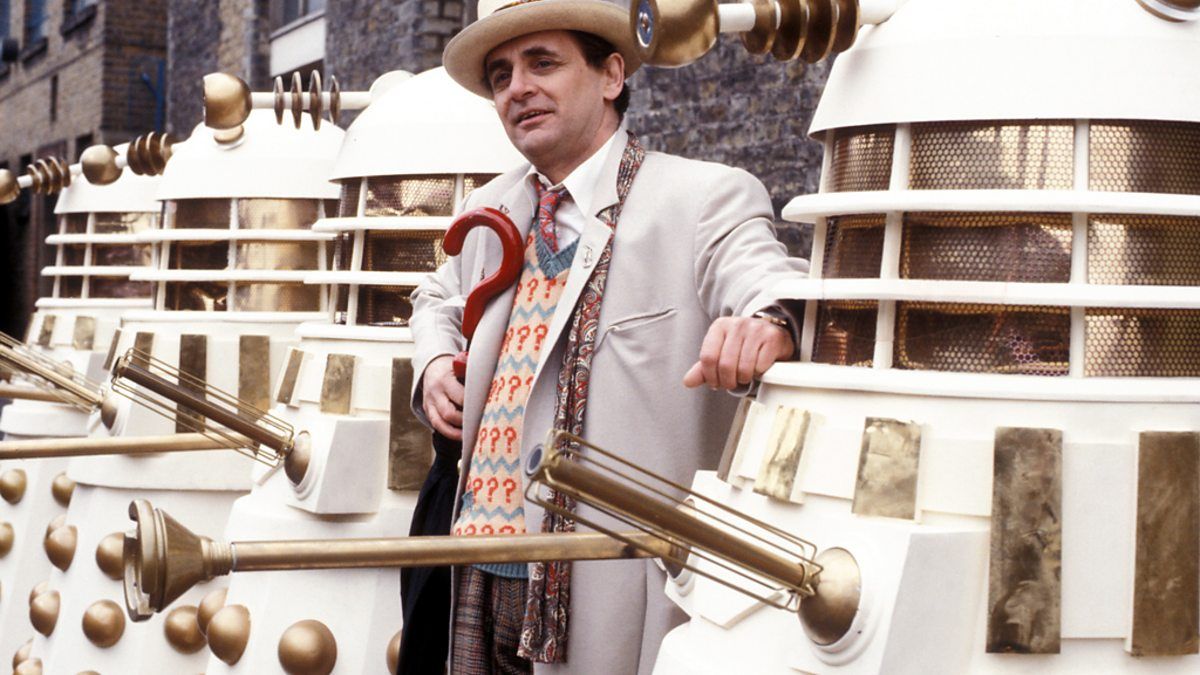Becoming a fan of a show as long-lasting as Doctor Who is no easy task. Despite the episodic nature of the series being very welcoming to new viewers, the prospect of going all the way back to 2005 to catch up with the show’s lore and overarching storylines might seem like a task too daunting to be fulfilled. And when it comes to Classic Who, things get even more complicated.
The original Doctor Who series aired on BBC1 from 1963 to 1989, with a total of 695 episodes spanning over the course of 26 seasons, divided into serials linked together by a common story. Apart from the sheer number of episodes, big enough to strike human emotions such as fear and bewilderment at the metaphorical heart of a Dalek, the fact that many classic episodes were wiped from our timeline by the BBC’s junking policy of the 1960s leave potential fans at a loss about where to start. Kicking it off with the very first episode isn't a bad instinct, but the pacing of the earlier stories might prove to be way too slow for 21st-century viewers, unaccustomed to the way things were done in the old days of television. However, picking it up at a later point — for instance, Tom Baker’s fan-favorite tenure as the Fourth Doctor — might deprive viewers of some truly great stories that introduce us to core aspects of the show’s lore or that are just good pieces of entertainment in and of themselves.
In order to help newcomers navigate the universe of classic Doctor Who, here’s a list of seven serials, one for each of the classic Doctors, that are certainly worth a watch.
1. The Dalek Invasion of Earth (Season 2, Episode 2)
The Daleks were the first alien enemies faced by the Doctor. However, the first serial to feature them was not "The Dalek Invasion of Earth," but Terry Nation’s appropriately titled "The Daleks." What “The Dalek Invasion of Earth” marks, though, is the first time an enemy made a comeback in Doctor Who, becoming one of the show’s regular bad guys. Full of iconic moments, such as William Hartnell’s final “I shall come back” speech, this six-parter has the original TARDIS crew — the Doctor, his granddaughter Susan (Carole Ann Ford), Ian (Jamie Glover), and Barbara (Jacqueline Hill) - finally making their way back to London after a series of travels through time and space. But, instead of 1963, the TARDIS leaves them in the year 2167, in which humanity is struggling against the dominion of the ruthless Daleks. Despite being a bit slow at some points, as most early stories usually are, “The Dalek Invasion of Earth” holds up nicely and represents a pivotal moment in the series’ history. After all, apart from the returning villains, it also features the first companion departure, with Susan all but being kicked out of the TARDIS by her grandfather to stay with a human freedom fighter.
2. The War Games (Season 6, Episode 7)
This ten-episode-long war epic of a serial is the last story of Patrick Troughton’s run as the Second Doctor (he would later reprise the role in a couple of specials and in the 1985 story “The Two Doctors”). The Doctor and his companions, Jamie (Frazer Hines) and Zoe (Wendy Padbury), land in the middle of a World War I battlefield. Mistaken for spies, they are taken to martial court, and the Doctor is sentenced to execution. As they look for a way to escape their fate, the TARDIS crew realizes that they are stranded in one of many War Zones spanning through space and time that are under the control of the mysterious War Lords. Despite erring on the longer side of the tracks, this thrilling serial earns every second of its roughly four hours of total runtime, keeping viewers on the edge of their seats at every turn, and introduces two essential elements of Doctor Who lore: the Time Lords and the planet Gallifrey. For fans of the rebooted series, “The War Games” also offers the rare opportunity to see the sonic screwdriver being put to use as the gods of time intended — that is, as a screwdriver.
3. Terror of the Autons (Season 8, Episode 1)
With adventures set almost entirely on Earth and the first seasons to be broadcasted in color, Jon Pertwee’s run as the Third Doctor is fondly reminded by lovers of the classic series for introducing many fan-favorite elements and characters to the show’s universe, such as UNIT, the Master, Brigadier Lethbridge-Stewart (Nicholas Courtney), and Sarah Jane Smith (Elisabeth Sladen). However, they didn’t all make their debut at the same time. Often considered a soft reboot of the Pertwee era, “Terror of the Autons” solidified UNIT’s overall visuals and, two years before Sarah Jane’s first appearance, replaced companion Liz Shaw (Caroline John) with Jo Grant (Katy Manning). It also introduced the Doctor’s arch-nemesis, the Master, then played by the legendary Roger Delgado. The plot follows an Earth-bound Doctor as he tries to adjust to his role in UNIT and faces a quiet alien invasion of catastrophic proportions. Helped by the Master, the world is about to be taken over by a plastic-controlling life force known as the Nestene Consciousness — the same one that attacked Rose Tyler (Billie Piper) and the Ninth Doctor (Christopher Eccleston) in the 2005 reboot’s pilot episode. Despite having a somewhat anticlimactic ending, the serial is at the same time spooky and silly in a good way, that is, exactly the kind of thing one expects from a good Doctor Who story. It’s also a great introduction to the show’s golden years as well as a nice peek into a more unusual, less space and time travel-driven era of the series.
4. City of Death (Season 17, Episode 2)
While enjoying a holiday in Paris, the Doctor (Tom Baker) and his Time Lord companion Romana (Lalla Ward) begin to sense brief disturbances in time. It all seems to be connected with the strange experiments being conducted in a basement at request of the rich and mysterious Count Scarlioni (Julian Glover), who is also behind an ambitious plan to steal the Mona Lisa. But who exactly is Scarlioni? And what on Earth is he up to? Penned by renowned sci-fi author Douglas Adams (The Hitchhiker’s Guide to the Galaxy) and then producer Graham Williams under the pseudonym David Agnew, “City of Death” is the first serial on this list that doesn’t introduce any new element of consequence to the Who-niverse, since the show’s basic lore was already well-established at that time. Nonetheless, “City of Death” is easily among the top 5 best stories of the classic series, with an engaging plot, interesting characters, and an incomparable sense of humor. It is also a great stand-alone serial for those who wish to take a more casual approach to the show, requiring absolutely no previous knowledge of Doctor Who. Fans of the rebooted series will certainly recognize a lot of the show’s current pacing and humor in the story, as well as traces of the newest incarnations of the Doctor in Baker’s portrayal of the character.
5. Earthshock (Season 19, Episode 6)
So far, this list features a Dalek and a Master story. From a classic Who villains point-of-view, it’s about time we take a look at a serial devoted to the Cybermen. One of Peter Davison’s personally favorite stories from his run as the Fifth Doctor, “Earthshock” looks like a pretty run-of-the-mill Doctor Who episode at a first glance. After arriving at an archeological excavation site in which a massacre has recently taken place, the Doctor, Nyssa (Sarah Sutton), Tegan (Janet Fielding), and Adric (Matthew Waterhouse) stumble upon a strange device that leads them to a spaceship full of hidden Cybermen ready to destroy Earth. However, an unexpected turn of events and heroic sacrifice make “Earthshock” stand out among other serials of its time. It’s tough to say more without spoiling the story, but, even without its final moments, the serial is still worth a look for its solid storytelling, the companion drama that would become a staple of the series in the 2000s, and Beryl Reid’s show-stealing performance as the spaceship’s captain.
6. Vengeance on Varos (Season 22, Episode 2)
Colin Baker’s tenure as the Sixth Doctor is far from being well-regarded by fans. Despite some Who-lovers really enjoying serials like “Revelation of the Daleks” or parts of the “Trial of a Time Lord” arc, it is generally agreed that Baker got some of the worst writing the series’ ever had. Choosing a Sixth Doctor serial to introduce the classic show to potential fans is a hard task. In the end, the one that stands out the most is the gritty, dystopian “Vengeance on Varos”. While searching for a rare mineral to fix the TARDIS, the Doctor and Peri (Nicola Jane Bryant) land on the planet Varos, ruled by a fascist-like regime that submits dissidents and government members alike to televised executions on which audience members can vote via an interactive TV system. It’s a grim-looking two-parter that frequently seems out of place in the Doctor Who canon, but that is worth the watch for its visionary satire of reality television. Kind of like a proto-“Bad Wolf”, but with less refinement (and more casual misogyny). Pay attention to a couple of bloodthirsty TV viewers played by Stephen Yardley and Sheila Reid, as they are easily the best part of the story.
7. Remembrance of the Daleks (Season 25, Episode 1)
Putting “Remembrance of the Daleks” on a list of classic Doctor Who episodes meant for newcomers wasn’t an easy decision to make. After all, the serial requires at least some previous knowledge of Dalek stories to be fully appreciated. Still, if you’re up-to-date with the 2005 reboot of the show, you’ll be able to get the gist. Once more, it’s a story that seems extremely familiar to anyone that has ever seen Doctor Who: in 1963 London, the Doctor and everyone’s favorite rebellious teen, Ace McShane (Sophie Aldred), must stop two warring groups of Daleks from laying their whisks and plungers on some piece of Time Lord technology left on Earth. But “Remembrance of the Daleks” is a great turning point for Doctor Who, marking a tonal shift for both the titular character and the show. After a whole season of comic antics, Sylvester McCoy’s Seventh Doctor displays a level of weariness and cold blood never before seen in the history of the show. If you think the Tenth Doctor’s (David Tennant) “Time Lord victorious” phase was dark, you are severely underprepared for the callousness and manipulation of McCoy in "Remembrance of the Daleks." It’s hard to imagine any of the heavier post-Time War storylines, or even the Time War itself, coming into being without "Remembrance of the Daleks." The serial is also a great piece of storytelling in its own right featuring a great incarnation of the Doctor and an amazing companion.

